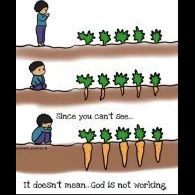Worthy Christian Forums Will Be Moving Servers on July 3. We hope that it will be completed with a few hours.
-
Posts
1,276 -
Joined
-
Last visited
Reputation
715 GoodProfile Information
-
Gender
Male
-
Location
USA, MO.
-
Interests
Sharing Scripture, boating, fishing, playing chess, astronomy
Recent Profile Visitors
7,948 profile views
-
If that's as far as you want to go, so be it. God bless! We already know by the Word of God that the majority of mankind will not choose to be saved (Matt 7:13, 14). But those that should be saved will be saved!!
-
Hi and thanks for your reply! I like most of your comments; and of course those who cannot attend the assembly due to illness or certain other problems is not taken into account concerning this issue. Some issues are addressed by indirect inference, but it's not a difficult importance understanding that a Christians need to attend fellowship with other Christians, because God works through Christians to admonish one another, in the Word and worship, etc. Hope this isn't too much to share: John Gill (1697-1771): Verse 25. Not forsaking the assembling of ourselves together,.... "Or the episynagogue of one another; which word is used to distinguish Christian assemblies from Jewish synagogues, and to denote the coalition of Jews and Gentiles in one church state, and to express the saints' gathering together to Christ; see 2 Thessalonians 2:1 and their act of meeting together in some one place to attend his worship, word, and ordinances. Now to "forsake" such assembling, signifies a great infrequency in attending with the saints, a rambling from place to place, and takes in an entire apostasy. It is the duty of saints to assemble together for public worship, on the account of God, who has appointed it, who approves of it, and whose glory is concerned in it; and on the account of the saints themselves, that they may be delighted, refreshed, comforted, instructed, edified, and perfected; and on account of others, that they may be convinced, converted, and brought to the knowledge and faith of Christ; and in imitation of the primitive saints. And an assembling together ought not to be forsaken; for it is a forsaking God, and their own mercies, and such are like to be forsaken of God; nor is it known what is lost hereby; and it is the first outward visible step to apostasy, and often issues in it." Albert Barnes (1798-1870): "The command, then, here is, to meet together for the worship of God, and it is enjoined on Christians as an important duty to do it. It is implied, also, that there is blame or fault where this is “neglected.” Joseph Benson (1749-1821): "Not forsaking the assembling of ourselves together For public or social worship; as the manner of some is Either through fear of persecution, or from a vain imagination that they are above external ordinances; but exhorting one another To constancy in the faith, zeal and diligence in all works of piety and virtue."
-
WordSword started following Truth Be Said
-
One can know God casually and be saved. But He needs to be known intimately, so a Christian can grow in the image of Christ (Rom 8:29; 1Co 15:49; 2Co 3:18). How do we get to know God intimately? Through enough church attendance and Bible study. There’s no way He would allow a believer to grow without these two occurrences, for He desires all believers to be in fellowship with other believers. Sure, a few can regularly get together for Bible study, but that’s not corporate worship and corporate Bible study! Hebrews 10:25 admonishes saints “not to forsake the assembling of ourselves together, as is the manner of some, but exhorting one another.” When a Christian does not attend a church, everything they need to grow is according to God’s desire is missing! God does everything to cause believers to want to be together, for that’s how He wants us—together. If you’re in a church you just don’t like, you can find one you will like. If you can’t find one you like, you are not really looking (“seek and ye shall find” - Mat 7:7). One can only love another according to how one’s applicable love is to God: “If a man say, I love God, and hateth his brother, he is a liar: for he that loveth not his brother whom he hath seen, how can he love God whom he hath not seen (1Jo 4:20)? Now, there’s no way you can love others the way our Father desires us to love, if you do not know those in a church. I hope you can see that this article is only to admonish and not judge; and frankly, I do not think enough can be said towards admonishing believers to find a church they want to attend! “Now unto Him that is able to keep you from falling, and to present you faultless before the presence of His glory with exceeding joy” (if you’re reborn – Jude 1:24; Rom 16:25; Eph 3:20).
-
Hi, and thank you for your compliment. God bless, and God be blessed!
-
WordSword started following Test Run , Love’s Loveliness , “It Became Him” and 1 other
-
It may seem a strange thing to say, but I say it after considerable thought, and some years of experience in talking to people of all kinds, that there is hardly anything so little understood by Christians generally as the love of God When I say “the love of God,” I do not mean His love to the world, His love for those who have sinned against Him with hard hearts and a high hand. That love is beyond comprehension—too great, too utterly stupendous for mere words to set forth. I refer rather to that special love which God has to us His children, the Father’s love to those who belong to His dear Son. Ask the average Christian how he knows that God loves him? “Well, God has been very good to me: He has brought me through many a trial, and though I have had many ups and downs, yet here I am today, still trusting and following.” Perhaps some reader of these lines is rather astonished that one should regard such a reply as anything but very right and good. Well, we do not find fault with it; we thank God for all the causes He gives us to speak of His abundant delivering mercies in times of a trial, and of His abundant goodness and constant care. But I ask, what about those who have not been delivered in the hour of their trouble? A Christian, who intended to go from Europe to America by the ill-fated Titanic, but prevented by some unforeseen event, took it as a great proof of God’s love that He allowed that event to hinder him from taking that vessel. But what about the Christians who were not thus providentially hindered, who did take that vessel, and who went down with her in mid-ocean? Were not they equally the object of God’s love? God has mercifully and providentially intervened in times of persecution and distress on behalf of one another of His poor troubled people. The readers of such a book as “A Thousand Miles of Miracle,” will be at no loss to quote instances of this. On the other hand, numbers were not delivered; no “miracle” of providential mercy was wrought on their behalf. They were left to be cruelly slaughtered by their savage persecutors. Did not God love them as much as those that He was pleased to succor and deliver? The mercies which we enjoy every day, and which we are accustomed sometimes to speak of as “our common mercies,” were often denied to the Apostle Paul. He knew what it was like to lack food and clothing, to have no roof over his head, and to go from day to day in danger of his life (1Co 4:11). Did not God love Paul? Let me go further. Let me speak for a moment of Him who came from eternal riches to be poor from love for us. He was acquainted with grief (Isa 53:3); worse off than the foxes with their forest lairs and the birds with their roosting-places. He had nowhere to lay His head (Mat 8:20). Others could go to their homes, while He spent the night on the lone mountain side. Mercies which you and I take as matters of course were withheld from Him. Why? Was He not ever the worthy subject of His Father’s infinite and everlasting love? Aye that He was. Then why the poverty, suffering and grief during His lifetime on earth, when it was no question of making atonement? Mark the answer: Because the Father’s love does not express itself in the form of earthly and temporal mercies, or at least, is not to be measured by them, though He may give us many , and we may rightly take them all from His gracious, loving hand. God is good to all creatures. He bestows His mercies on the unconverted as well as upon those who belong to His Beloved. There is a well-known story of Charles Spurgeon’s visit to a Christian farmer. I was relating it to a God-fearing widow by whose fireside I was sitting. She had been passing through sore and bitter trial, and the enemy had taken advantage of this to sow in her heart the seeds of distrust and doubt. She felt that God had forgotten her; that at all events, His love was not such a reality towards her as towards others. So I told her of Spurgeon’s visit to the farmer, and of his inquiry when he notices that in the place of the usual bird, fish or arrow, a text “God is Love,” had been placed upon the old barn as a weathervane. “Do you mean to say by that,” he asked, “that God’s love is as changeable as the wind?” “Nay, nay,” replied the farmer, “my meaning is that God Is Love, whichever the wind blows!” This is the lesson we need to lay at heart. We must in no wise measure God’s love by circumstances. The gentle breeze from the south may blow upon us, bringing ease and prosperity; or the biting blasts may sweep down from the frozen north, bringing trials, grief, suffering and disappointment. But nothing changes the love of God. The grand truth is that He loves us as He loves His Son. Wonderful words, and they are true; for read the precious words for yourself in John 17:23. It is the Son of God, our Lord Jesus who says: “Thou … hast loved them, as Thou hast loved Me!” Lying before me on a table is a picture of a small hotel. Stretched across the full width of the building, above the door, is a long board bearing these words: “Free Board Every Day The Sun Doesn’t Shine.” If an unwary traveler should enter the hotel on some gloomy day and demand a meal, free of charge, on the strength of this inscription, he would of course, be blandly asked by the proprietor, “Why, sir, do you imagine that the sun has ceased to shine? It may be gloomy here, but the sun is shining in all its glorious brightness!” And so with us. We might make the most extravagant promises for the day upon which the sun of God’s love does not shine. For such a day will never be, in winter as in summer, on dark days as in bright ones, for the Father’s love to us abides in its infinite greatness, because His love to His Son ever remains the same. —Harold Primrose Barker (1869-1952) MJS daily devotional for June 23, 2025 “Be anxious for nothing, but in everything, by prayer and supplication with thanksgiving, let your requests be made known unto God” (Phil. 4:6). “Ignorance insures insecurity; scriptural knowledge secures strength. “For God hath not given us the spirit of fear, but of power, and of love, and of a sound mind” (2 Tim. 1:7). “In mechanics, wobbling is weakness. Power issues from God’s restfulness. Are we resting in the Lord? Can we wait patiently for Him to act? Anxiety reduces spiritual energy. Lack of rest of heart is one of the most serious hindrances to Christians. “Fret of soul when wronged, or fuss over financial or other concerns, is a depletion of power, a dissipation of energy. From the rock basis of rest in Him we can put forth the whole of our energies. Perfect peace is our promised portion. “Martha gets instruction; we all get that, for our Lord neglects none of us; but she did not get His company; company is what gives rest to the heart. “Nothing can separate the believer from the love of God, and under no circumstances whatever can he come under the infliction of wrath from God. He may have to correct His saints for their sins, and where there has been no failure He may chasten (child train) them for their profit, that they may become partakers of His holiness; but all this is in love, not in wrath. Every action of God toward His saints is in grace and blessing; it is ever the outcome of His love.” —Miles J Stanford “And the peace of God, which passeth all understanding, shall keep your hearts and minds through Christ.” Jhttp://www.abideabove.com/hungry-heart/esus” (Phil. 4:7)
-
“For it became him, for whom are all things, and by whom are all things, in bringing people unto glory, to make the captain of their salvation perfect through sufferings. For both He that sanctifieth and they who are sanctified are all of one: for which cause He is not ashamed to call them brethren” (Heb 2:10, 11). This verse tells both how God’s grace has extended to us; and what became this God to do, in bringing many to glory, into His very presence Who dwelleth in light unapproachable? He was to bring them to glory. Therefore, He must go where they were, and become one with them as to their guilt (Not guilty Himself of course or He could not be the Sacrifice—NC), which He must bear; and become sin on their behalf (become like sin but not sin itself, i.e. “likeness of sin” Rom 8:3). So bringing many children unto glory would involve sufferings—the most terrible of all, to be forsaken of His Father—made a curse for us (sacrificed for the curse but without imputed sin - Gal 3:13—NC)! Nothing else could “become” God as regarding our sin and our sinful state (possessing the old man is sin’s source—NC). 1. It became His being, as God. It was into God’s presence we were to be brought (Heb 4:14, 16). 2. It became His holiness: with an infinite abhorrence He hated sin (Psa 97:10; Pro 8:13). 3. It became His righteousness: He must deal righteously in bringing others to glory (Jhn 17:22). 4. It became the God Whose name is Love (1Jo 4:8) to do this amazing thing—bring to glory many people. Only a God of Love would want us There. 5. It became His wisdom, “of Whom are all things and for Whom are all things” (Heb 2:10). He sees the eternities and has planned for them as it became Him. 6. It became His Lordship over all things (Phl 2:9-11). Knowing all things about all creatures, He could place them all where He would. God chose to place first those redeemed by His Son (Christians are second to the Trinity and are more important than the angels, man being the sole creature in God’s image—NC). 7. It became the Father because the Lord Jesus’ obedience unto death revealed God for all ages. He is worthy to be obeyed, said His Son, even into forsaking, anguish and death! Finally, the Father infinitely loves His Son, the “Captain” of these people. Thus it became Him to plan for that Son a path of sufferings untold and unutterable, in walking in which day by day that Son’s fidelity to God His Father became manifest to all eternity; and God will forever remember the Son’s sufferings, as if they were but yesterday. Thus, it became God to make the Leader of our “salvation perfect through sufferings” (Heb 2:10), and remember, if we suffer with Him, it is because we are redeemed by His sufferings and sacrifice. Satan hates redeemed ones, those trusting Christ’s one offering (Heb 10:10). So he makes them suffer, whether by temptation to doubt the Savior’s sacrifice; or be calling attention to their weak faith, or inconsistent walk (1Jo 2:6). The Lord Jesus accepted work on the Cross (accepted of the Father - 2Co 6:18), and not our grasp of it, is the question! We know that the Father has accepted His Son’s sacrifice (Matthew 3:17), because He raised Him from the dead and set Him at His own right hand in glory! It became God . . . “to make Him perfect through sufferings.” It behooved Christ to suffer, and to “rise again from the dead.” The very foundation of the Gospel appears in this word, it became God! It became Him to judge sin; it became Him to give His own Son to bear sin (the Father could have come instead of the Word, but the Father wanted it to be the greatest sacrifice of all—NC). It became Him to lay before that Son a path “even unto death” (Mat 26:38).While we now “behold . . . Jesus crowned with glory and honor” (Psa 8:5; Heb 2:9), let us not only see His present place as God’s reward to Him for His path of obedience, but also regard His path of suffering thereto, as the only path which could become a holy God! —William R Newell (1865-1956) MJS daily devotional excerpt for June 5: Circumstantial Evidence The Spirit convicts us of sins that we may be convinced of God’s cleansing. We do not deserve to be forgiven, but the Lord Jesus deserves to be trusted. –MJS (we deserve God’s forgiveness after rebirth-NC) “We find the greatest difficulty often in bringing our sorrow to God. How can I do so, some may be saying, as my sorrow is the fruit of my sin? How can I take it to God? If it was suffering for righteousness’ sake, then I would, but I am suffering for my sin; and can I, in the integrity of my heart towards God, take my sorrows to Him, knowing I deserve them? “Yes: the Lord Jesus has been to God about them. This, then, is the ground on which I can go. There has been perfect atonement for all my sins; Christ has been judged for them. Will God judge us both? No; I go to Him on the ground of atonement, and God can justly meet me in all my sorrow, because Christ’s work has been so perfectly done. “The guilt which the throne detects, the altar removes. If in the light of the throne one object is seen, namely, ruined, guilty, undone self; then, in the light of the altar, one object is seen, namely, a full, precious, all-sufficient Christ. The remedy reaches to the full extent of the ruin, and the same light that reveals the one reveals the other likewise. This gives settled repose to the conscience. God Himself has provided a remedy for all ruin which the light of His throne has revealed.” - John Nelson Darby (1800-1882) http://www.abideabove.com/hungry-heart/day/2025/06/05/
-
- 1
-

-
The essence of a Christian is that, although he is upon the earth, he is heavenly; and how could he know and grow in that, unless by the revelation of a heavenly Man who is his Life (Col 3:4)? Who is or could be that heavenly Man but the Man Christ Jesus, Who, after having put away sin by the sacrifice of Himself, takes this new place there, Head of a family, and is so revealed to us by the Holy Spirit sent down from heaven (1 Corinthians 2:10). Besides having the detailed Word of the Father, we want an object to attach our hearts to; we need it that we be not lost in “the abundance of revelations” of God (2Co 12:7). Here then is One Who can claim every affection, Who can detach us by the revelation of Himself, the worthiest of all objects, an Object worthy of God the Father, and surely of us the children who delight in what He delights in. This is none other than the Lord Jesus, but it is He after all the evil is judged, after all the good is won, after love had nothing to do, nay, even righteousness no other task but to bless us. This is what God now can afford to do as the Father. This is what He is now doing through the infinite sacrifice of the Lord Jesus. But this is what He now reveals, through the Lord Jesus in His presence, and by the Holy Spirit sent down gives us to know. His setting Himself apart at the Father’s right hand is a root of divine truth, yea, and the root of our distinctive blessedness. He is there the Life-Source (Col 3:4) according to Whom the Spirit forms us by the truth (2Co 3:18; Rom 8:29). It is thus essential in order that He fitly and fully should be the means of that wondrous display of truth and love that the Father looks to be reproduced in those that are His here below. This then is the further intimation in the words, “For their sakes I sanctify Myself, that they also might be sanctified through the truth.” We require the Father’s Word; but we also require the Father’s Son thus set apart in heaven, and in the order too. For the Father’s truth that is made known in the Net Testament epistles invariably precedes our full appreciation of the Lord Jesus (the NT increases our appreciation of the Lord Jesus—NC) at His right hand, thus sanctifying Himself that we might be sanctified through the truth. But then when we have seen the Lord Jesus there in the glory, when we appreciate the all-importance of having Him as an Object before our souls entirely outside the world, according to which the Holy Spirit is carrying us on and transforming us while we are here below (2Co 3:18), the truth is everywhere made more personal and powerful. Not only that the truth abides in the Word, but that it is thus applied with increase of blessing. As He said, “For their sakes I sanctify Myself,” But not stopping at this, “that they also might be sanctified through the truth.” Thus we see, if we begin with the truth and rise to see or personal position with the Lord Jesus, the truth only receives more and more point and reality through it. —William Kelly (1821-1906) MJS devotional excerpt from “None But The Hungry Heart” for May 12 5-12. Trusted Trainer “He knoweth the way that I take; when He hath tested me, I shall come forth as gold” (Job 23:10). In every field, whether the arts, industry, sports, or the Christian life and service in general, the necessary training goes far deeper and is much more rigorous than the actual performance. “Now, at the time, discipline seems to be a matter not for joy, but for grief; yet it afterwards yields to those who have passed through its training a result full of peace—namely, righteousness” (Heb. 12:11, Wey.)—MJS “The Father chooses the servant who is suited to carry out His will; but though that servant be endowed by Him with power to do so, yet unless he be controlled and disciplined by the Spirit of God he will continually fall into the devising’s of his nature, no matter how godly and divine may be his intent. For we greatly err if we think that having the divine thought is all that is necessary as to our service; we must truly and efficiently be expressive of the thought; and this subjects us, as servants of God, to discipline which we often cannot understand. “Discipline for known faults or shortcomings we can easily comprehend; but when it is that peculiar order of training which fits a man to be God’s instrument and witness, we can no more understand it than the plants of the earth can understand why they must pass through all the vicissitudes of winter in order to bring forth a more abundant harvest.” -J.B.S. “God leaves us in the world that we may learn the sufficiency of His grace in practice, as we know the triumph of it in Christ.”—MJS “Jesus answered and said unto him, What I do thou knowest not now, but thou shalt know hereafter” (John 13:7). http://www.abideabove.com/hungry-heart/
-
Hi, and thanks for your reply! God tests the soul of believers, but never has to takeaway their salvation, because He knows they will love and obey Him (Phl 2:13). He never gives salvation to anyone He knows that does not truly believe in Him.
-
I would need specific passages to understand what you are trying to say. Thanks for you reply.
-
Isn't the breath of God just something physical, like a breath into a newborn baby? The Holy Spirit didn't come until Acts 2; in John 20:22 it says "He breathed on them, and saith unto them, Receive ye the Holy Ghost. This couldn't mean they actually received the Spirit, but the the Lord Jesus was preparing them for service, i.e. gifts of the Spirit.
-
Hi, and appreciate your reply. The way I see it is that Adam and Eve did not have God "working in them" (Phl 2:13) as we now do; which is why we no longer want to sin, our sins are no longer "willful" (Heb 10:26), like Paul, he did not want to sin, but still possessing the sin nature or "old man," we still sin. (Rom 7:15, 20).
-
"For if we sin willfully after that we have received the knowledge of the truth, there remains no more sacrifice for sins." If we are reborn we will not want to sin, but we still sin impulsively or ignorantly, not intentionally (Heb 10:26). Why would a Christian want to sin anyway? Thanks for your reply!
-
Hi, and true! God knew us from eternity-past.
-
Hi AdHoc, thanks for your reply! Not sure what you mean, but "faith" is the first and sole means for channeling grace and salvation to the soul(Eph 2:8). Then after faith, "God who works in you both to will and to do for His good pleasure."
-
Some Christians believe that God can “Test Run” the soul. God doesn’t save you, then test you to see if you’re going to stay saved. I heard once that “everyone that should be saved, will be saved”—for there is a Book of Life “from the foundation of the world” (Rev 17:8—we were saved when the Lord Jesus said on His Cross “it is finished” - Jhn 19:30) containing everyone’s name whom God already knows He will save (which won’t be many, in comparison to the unsaved—Matt 7:13, 14). Salvation never comes by chance or happenstance, as if it’s something God didn’t already know! Look up the word “Omniscience,” because this alone provides the answers we need. Does it even make any sense that God would give you eternal life, and latter take it back for whatever reason? Christians were saved from eternity-past, because that’s when God foreknew everything. We have always been on God’s mind, and we are second to the Trinity, and above the angels—what father would put his children after anyone? Albert Barns (1798-1870) Rev 22:19—“Perhaps there is here an intimation that this would be most likely to be done by those who professed to be Christians, and who supposed that their names were in the book of life. In fact, most of the corruptions of the sacred Scriptures have been attempted by those who have professed some form of Christianity. Infidels have but little interest in attempting such changes, and but little influence to make them received by the church. It is most convenient for them, as it is most agreeable to their feelings, to reject the Bible altogether. When it said here that “God would take away his part out of the book of life,” the meaning is not that his name had been written in that book, but that he would take away the part which he might have had, or which he professed to have in that book. Such corruption of the divine oracles would show that they had no true religion, and would be excluded from heaven. On the phrase “book of life,” see the notes on Revelation 3:5.” John Gill— Rev 22:19 (1697-1771) “God shall take away his part out of the book of life; by which is meant eternal election, which is the meaning of the phrase throughout this book, in which whoever are written shall certainly be saved. The worshippers of the beast, or the antichristian party, who are chiefly regarded here, are not written in it, Revelation 13:8 wherefore taking away the part of such, is only taking away that which they seemed to have; see Luke 8:18 and the sense is, that such shall be cast into the lake of fire, which is the second death, and will be the portion of all that are not written in the book of life, Revelation 20:15. The Alexandrian copy, one of Stephens's, and the Complutensian edition, read, "the tree of life"; and so do the Syriac and Ethiopic versions; the sense is the same; see John 15:2 and out of the holy city; the new Jerusalem, before described, a part in which is a right to enter into it through the gates, and possess the glories of it: what is mentioned here is only a seeming one, which wicked men may flatter themselves with; and the meaning is, that such shall never enter into it, and enjoy the happiness of it, but shall ever be without, Revelation 21:27.”















